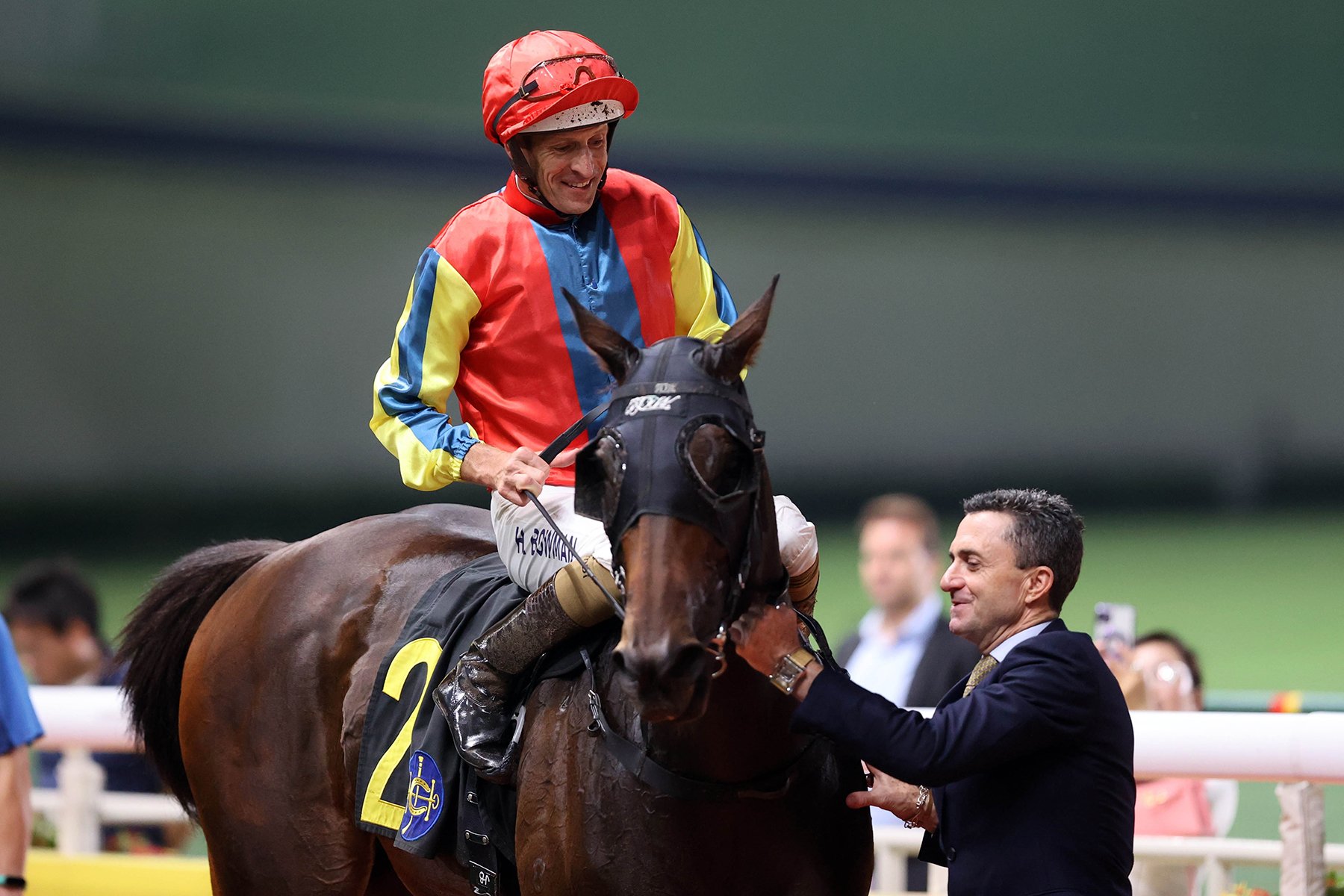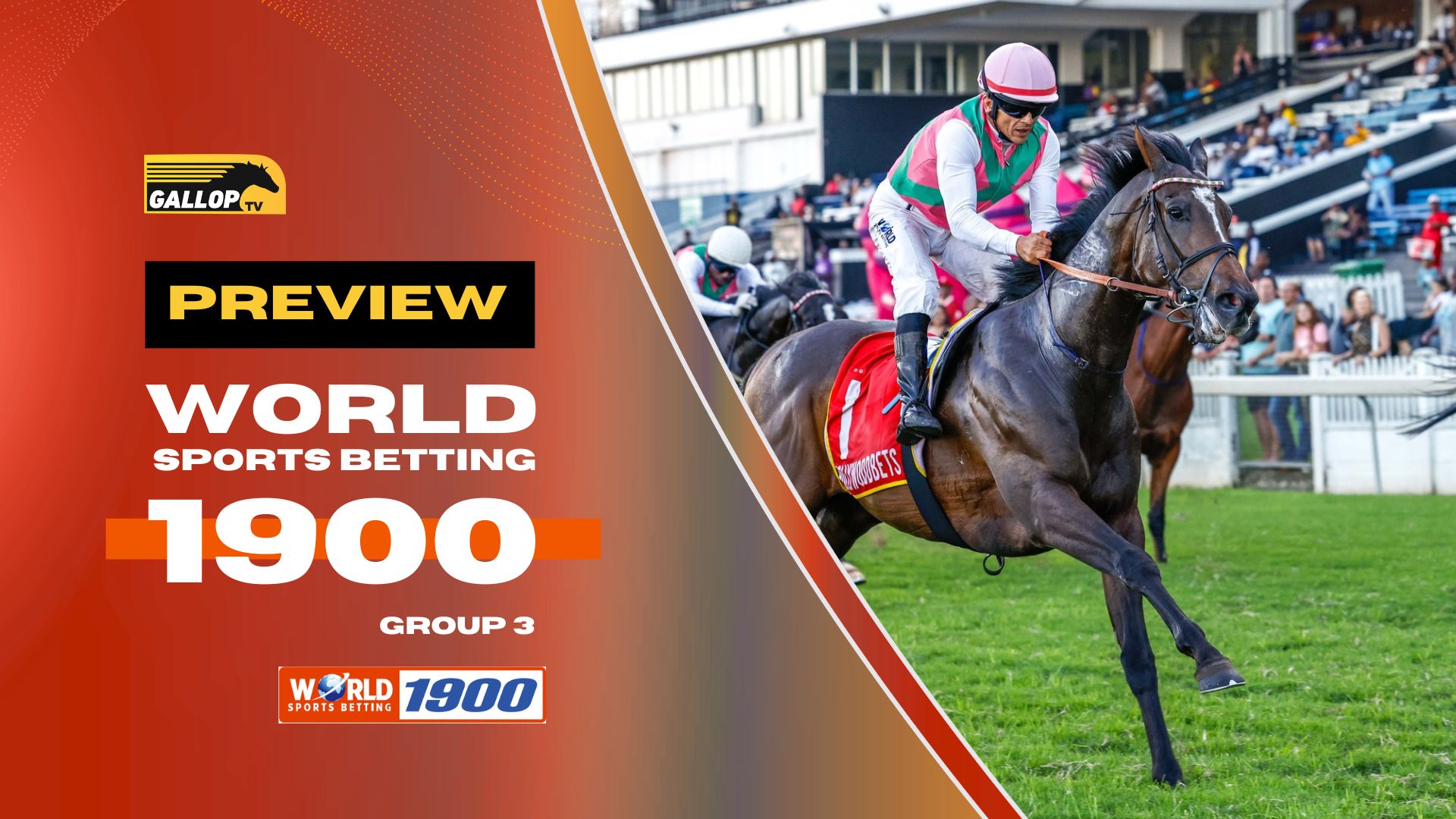The Vaal sand track will never be universally loved. For a start, a sand course with a 1000m run-in almost seems to be a contradiction in terms, negating as it does what should be the sort of fast-and-furious action which one generally associates with non-turf racing worldwide. Watching races on the Vaal sand can at times be akin to witnessing the growing of grass or the drying of paint, and there are occasions when the jockeys’ lot resembles something of the order of labouring to push an elephant up a hill as they try and eke one more effort out of a slow and tired horse in the almost endless slog to the finish line.
All that said, though, the alternative racing surface which the Vaal sand provides has launched the career of many a horse whose record on the traditional turf tracks may have been uninspiring or even downright hopeless, and the elite of these animals get their one shot at a bumper payday in the Emerald Cup. By a country mile Africa’s richest race on sand, this 1450m handicap is the centrepiece of the track’s calendar, and it is starting to stake a serious place in the national calendar as well. While racing on sand is and doubtless will forever be considered the junior partner of traditional turf competition in South Africa, the Vaal sand course has grown in stature since its inception a decade age and is no longer seen merely as the last resort of the slow, the lame, or the Kimberley-bound.
The introduction of the Emerald Cup a few seasons ago marked a coming of age of sorts for the sand track, and the race has grown to become one of Phumelela’s most widely marketed events. Little effort was seemingly spared in making the 2010 renewal noticed, and the reasonable (by today’s rather dire standards) crowd which turned up on a sunny afternoon last Saturday was justification enough. They were rewarded to a good finish, as well, with Iron Curtain hanging on long enough to deny Alimony a place in history as the first horse to win the Emerald Cup twice.
Alimony had won the race two years ago and was joined in the starting gates by 2009 winner Phunyuka, but it was Mike de Kock-trained Storm Crossing who was heavily supported from an ante-post call of 7/2 to start as the 17/10 favourite despite being drawn the widest in a maximum field of 14. Storm Crossing had impressed with a 6.25 lengths in a Listed conditions event over 1200m on the sand four weeks earlier, a race Phunyuka had also won en route to lifting the Emerald Cup twelve months previously, and had received no hike in his merit rating for it. Sayadaw (4/1) and Iron Curtain (6/1) were both well fancied by punters after respectively finishing first and second in a pinnacle plate over the same course-and-distance in early September. Cinnamon Sugar, a filly with terrific course form (but who has never even placed at maiden level on grass) and something of a poster girl for the merits of an alternative sand venue, was unbeaten in four course-and-distance appearances. The course record holder for the Emerald Cup trip, she had no shortage of fans either and sta
There is seldom a lack of early pace in races over 1450m on the sand and it was Lochlorien who opened up a lead of some three to four lengths early on, showing the way ahead of Raga Muffin and Iron Curtain, with Cinnamon Sugar well positioned at the rail in fourth. KZN raider Sharks Bay was next in line as Storm Crossing was waited with well off the pace. Alimony and Phunyuka adopted their usual waiting tactics as well and were a long way adrift of Lochlorien as the field spun for home.
Iron Curtain soon began to zoom in once Lochlorien weakened, joining issue a good 400m from home and being sent on his way by Gunter Wrogemann. The others who had raced handy all began to struggle, leaving Iron Curtain with a juicy advantage. Storm Crossing began to make headway wider out, but his effort seemed to fizzle out from the 200m mark onwards and it was left to a low-flying Alimony to mount the only serious challenge to Iron Curtain. St John Gray’s stalwart was rapidly eating into Iron Curtain’s advantage at the wire, but he was still a long head adrift where it mattered most. Storm Crossing was eventually beaten 2.75 lengths behind the winner in third place, a respectable effort all things considered, with Phunyuka running on to be another 2.25 lengths away in fourth.
Cinnamon Sugar simply didn’t quicken when the chips were down and was beaten 6.55 lengths into sixth place, with Sayadaw 8.75 lengths behind the winner in eighth place. This was a particularly disappointing effort from Sayadaw, who had beaten Iron Curtain by 0.75 lengths going away over the course-and-distance 23 days earlier and who could have been expected to make a real race of it here even meeting the eventual Emerald Cup winner on 2 kgs worse terms. Sharks Bay seemed to justify the opinion expressed in some quarters that a horse who has never raced on sand should not be invited to contest the Emerald Cup, fading to finish with only the tailed-off Club Victor behind him.
The paucity of other suitable sand races will make Iron Curtain a tricky horse to place going forward, but he does have some ability on turf. He is almost certainly better on the sand, having won this off a merit rating of 101 (he was rated 89 when last winning on grass), but at least he can be considered a dual-purpose performer to a point. He has after all won five times on turf, so he won’t really need to twiddle his metaphorical thumbs and mark time until the 2011 Emerald Cup rolls around.
Trained by Robbie Sage for owner/breeder Mrs Bridget Oppenheimer, Iron Curtain is a five-year-old gelding by former champion sire Fort Wood and hails from arguably Mrs Oppenheimer’s Mauritzfontein Stud’s best family. He is out of the Plugged Nickle mare West Wall, who won three races including the Gr 3 Strelitzia Stakes and who also produced Monyela – winner of both the Gr 2 SA Oaks and its Gr 2 KZN equivalent – to the cover of Fort Wood. More to the point, though, West Wall is a half sister to Horse Chestnut and that makes Iron Curtain a three-parts brother to South Africa’s best horse of the modern era. Horse Chestnut has been repatriated to stand at Drakenstein Stud in the Western Cape and it’s a sure bet that plenty of his offspring will be given a try on the Vaal sand track in times to come.
Iron Curtain has won eight of his 25 starts in total, earning R865 300 in stakes.







